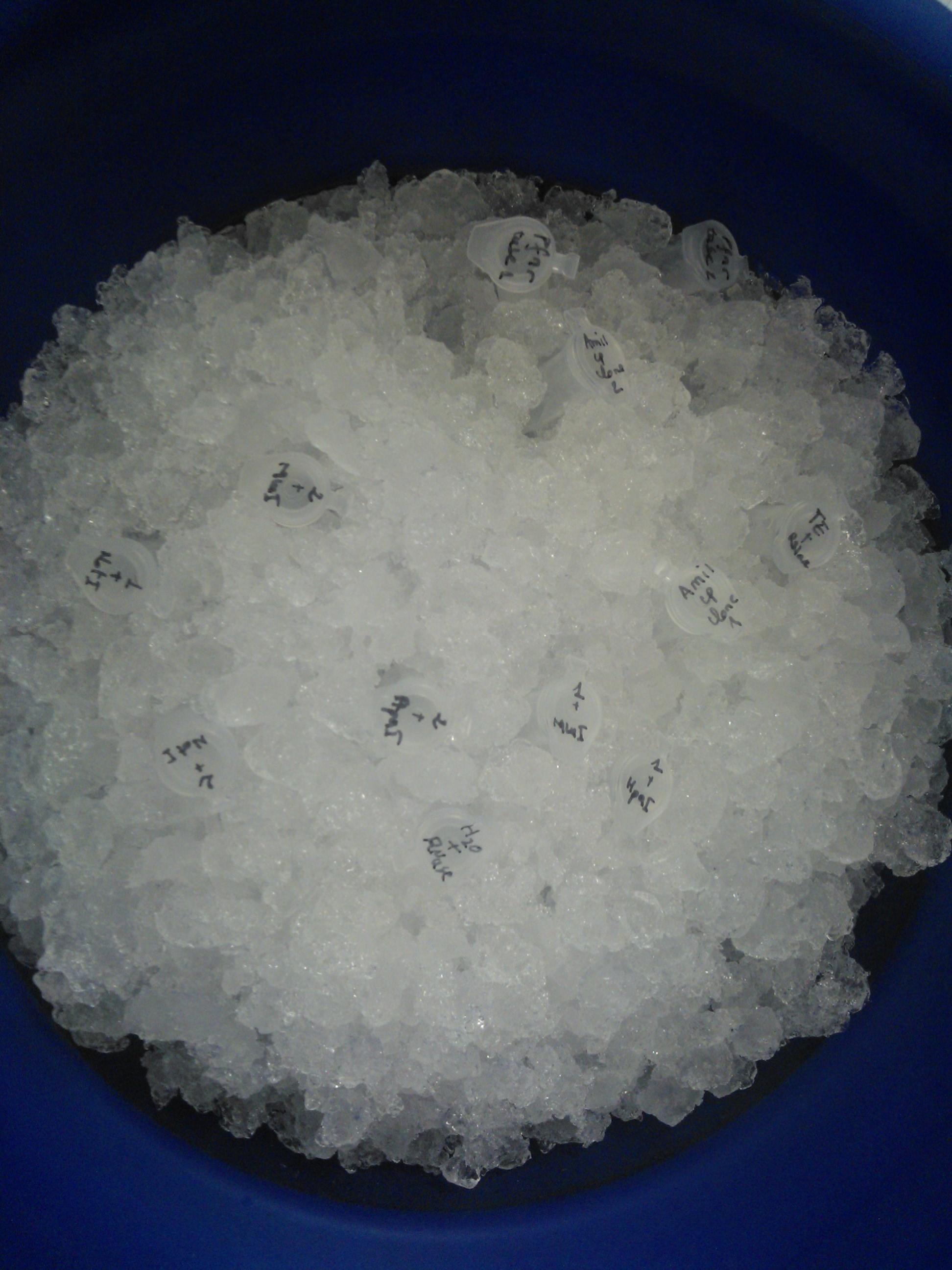Team:Paris Saclay/Protocols/Transformation
From 2013.igem.org
(→Protocol : Transformation of bacteria super competent cells) |
Shengsheng (Talk | contribs) (→Protocol : Transformation of supercompetent E.coli cells) |
||
| (4 intermediate revisions not shown) | |||
| Line 11: | Line 11: | ||
{{Team:Paris_Saclay/incl_contenu}} | {{Team:Paris_Saclay/incl_contenu}} | ||
| - | ='''Protocol : Transformation of | + | ='''Protocol : Transformation of supercompetent ''E.coli'' cells'''= |
| - | 1. Thaw | + | 1. Thaw supercompetent cells at room temperature. (almost 100µL for control and 100 µL for one DNA transformation ) |
2. Control T-: | 2. Control T-: | ||
| - | In a 1.5 ml microcentrifuge tube (eppendorf), add 100 μl solution of | + | In a 1.5 ml microcentrifuge tube (eppendorf), add 100 μl solution of supercompetent cells (0). |
Plasmid DNA pUC18 (or DNA of your choice) : | Plasmid DNA pUC18 (or DNA of your choice) : | ||
| - | In a 1.5 ml eppendorf , add 100 μl solution of | + | In a 1.5 ml eppendorf , add 100 μl solution of supercompetent cells, 1 μl (concentration 0.1 ng/μl) of DNA pUC18 (Resistant of Ampicillin)(1). |
| - | 3. Incubate solutions | + | 3. Incubate solutions on ice for 30 min. |
| - | 4. Make a heat shock: incubate bacteria at 42 °C for 1 min, then | + | 4. Make a heat shock: incubate bacteria at 42 °C for 1 min, then on ice for 2 min. |
5. Add 1 ml LB in two eppendorfs, incubate solutions with agitation at 37 °C for 1 h. | 5. Add 1 ml LB in two eppendorfs, incubate solutions with agitation at 37 °C for 1 h. | ||
| Line 29: | Line 29: | ||
6. Dilution for the solution (1): ( you are going to plate different dilutions of your pUC18 transformed bacteria) | 6. Dilution for the solution (1): ( you are going to plate different dilutions of your pUC18 transformed bacteria) | ||
| - | 10-1: In a 1.5 ml eppendorf (2), add 100 μl solution (1) and 900 μl LB. | + | * 10-1: In a 1.5 ml eppendorf (2), add 100 μl solution (1) and 900 μl LB. |
| - | 10-2: In a 1.5 ml eppendorf (3), add 100 μl solution (2) and 900 μl LB. | + | * 10-2: In a 1.5 ml eppendorf (3), add 100 μl solution (2) and 900 μl LB. |
| - | 7. Take 100 μl of each solution : the control(0)and the pUC18 transformed bacteria (1),(2),(3) spread them out on four identical environment with ampicillin ( or appropriated | + | 7. Take 100 μl of each solution : the control(0)and the pUC18 transformed bacteria (1),(2),(3) spread them out on four identical environment with ampicillin ( or appropriated antibiotic). |
Latest revision as of 18:16, 3 October 2013
Protocol : Transformation of supercompetent E.coli cells
1. Thaw supercompetent cells at room temperature. (almost 100µL for control and 100 µL for one DNA transformation )
2. Control T-: In a 1.5 ml microcentrifuge tube (eppendorf), add 100 μl solution of supercompetent cells (0).
Plasmid DNA pUC18 (or DNA of your choice) : In a 1.5 ml eppendorf , add 100 μl solution of supercompetent cells, 1 μl (concentration 0.1 ng/μl) of DNA pUC18 (Resistant of Ampicillin)(1).
3. Incubate solutions on ice for 30 min.
4. Make a heat shock: incubate bacteria at 42 °C for 1 min, then on ice for 2 min.
5. Add 1 ml LB in two eppendorfs, incubate solutions with agitation at 37 °C for 1 h.
6. Dilution for the solution (1): ( you are going to plate different dilutions of your pUC18 transformed bacteria)
- 10-1: In a 1.5 ml eppendorf (2), add 100 μl solution (1) and 900 μl LB.
- 10-2: In a 1.5 ml eppendorf (3), add 100 μl solution (2) and 900 μl LB.
7. Take 100 μl of each solution : the control(0)and the pUC18 transformed bacteria (1),(2),(3) spread them out on four identical environment with ampicillin ( or appropriated antibiotic).
 "
"
